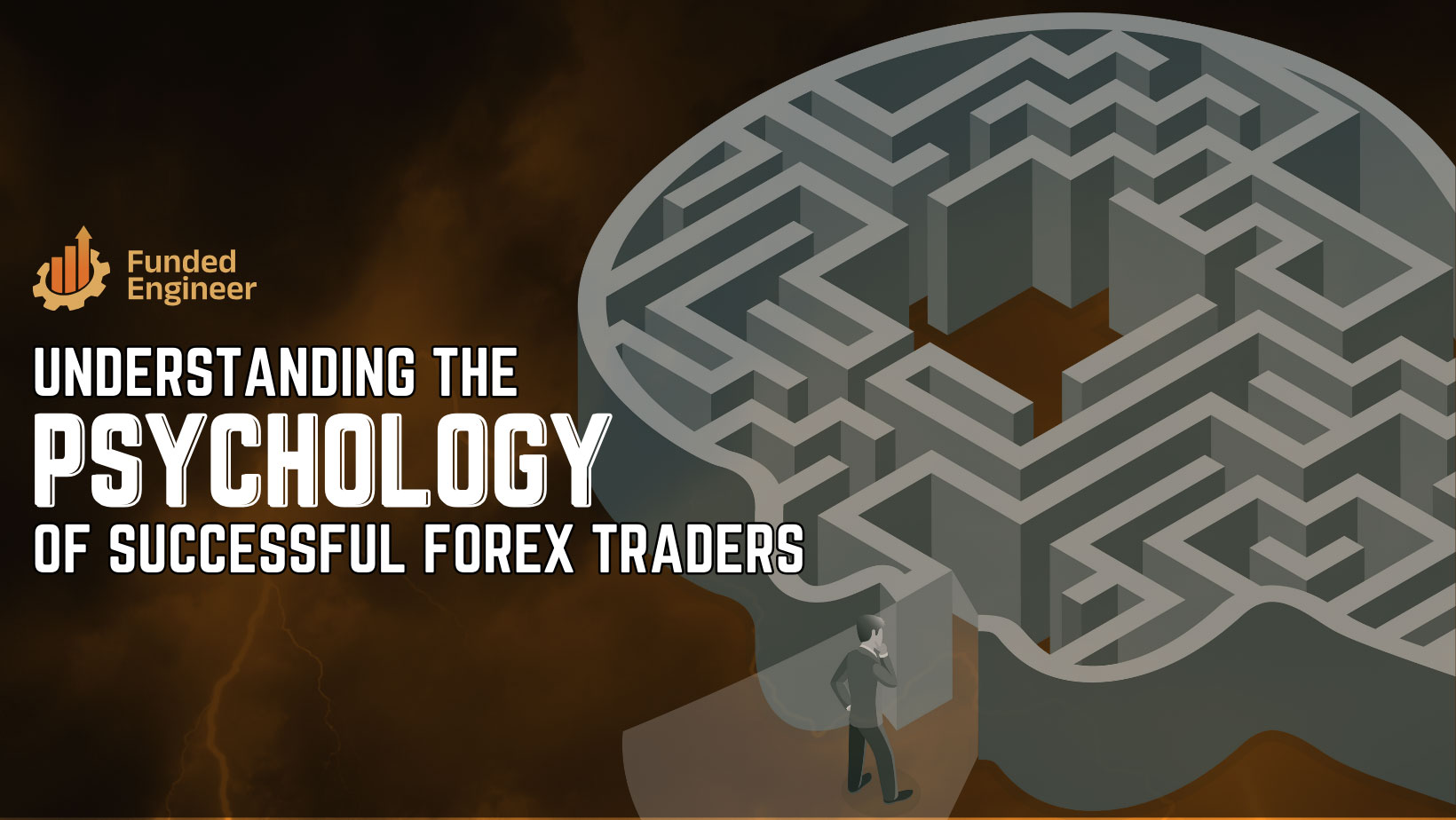Trading psychology is a critical and widely discussed topic in the trading world.
In this blog post, we will delve deeper into the psychology of trading, debunk common myths, and shed light on the key factors that contribute to trading success.
While psychology plays a significant role, it’s essential to understand that it alone cannot solve every trading challenge. This comprehensive approach aims to provide valuable insights and practical guidance for traders seeking success in the forex market.
The Role of Psychology in Trading
Psychology encompasses a broad spectrum of factors that influence trading decisions, but it is important to avoid simplifying too much trading difficulties as solely stemming from psychological issues.
While psychology undoubtedly affects trading performance, achieving consistent success requires a more comprehensive approach.
By acknowledging that mindset alone cannot resolve trading inefficiencies, traders can set themselves up for a more effective path to success.
The Importance of Execution
Execution is a fundamental discipline that traders often overlook.
While psychology influences decision-making processes, the inability to execute trades effectively may stem from a lack of a proper trading plan rather than poor psychology.
Evaluating the confidence in one’s strategy and the ability to execute trades plays a crucial role in overcoming trading challenges.
By identifying the root cause of emotions in trading (hesitation or anxiety), successful traders can address the specific issues hindering their execution.
Overcoming Destructive Habits
Traders need to address destructive habits that can contribute to poor trading outcomes.
These habits may include impulsive trading, deviation from established systems, copying trades without proper analysis, and engaging in revenge trading.
It is vital to recognize that poor trading psychology is often intertwined with other factors such as revenge trading, excessive risk-taking, FOMO, impatience, and a lack of a well-defined and trusted trading plan.
Developing discipline, knowledge, and a proven trading edge are crucial components of a profitable trader’s mindset.
Balancing Mindset and Skills
While developing a resilient mindset is crucial for long-term success, it should be grounded in experience, confidence in one’s system, and data-driven testing.
Affirmations and self-help practices alone have limited value without a solid foundation of sound trading principles and disciplined execution.
Striking a balance between mindset development and practical trading skills is essential for consistent performance in the market.
Execution > psychology?
It’s important to acknowledge that spending an hour or two analyzing your trades and journaling your thoughts can often provide more actionable insights than reading three trading psychology books.
One crucial aspect that traders often overlook is the importance of execution as a fundamental discipline.
Therefore, it’s crucial to evaluate whether the problem lies in your confidence in the strategy itself or your ability to execute trades effectively.
If you can honestly say that you have a proven edge that consistently generates profits and trades at a reasonable frequency…
But you still find yourself impulsively jumping into trades, deviating from your system, copying trades from social media influencers, or engaging in revenge trading…
Then the core issue lies in addressing these destructive habits rather than simply seeking answers in a psychology book.
Trading psychology may influence our decision-making process, but if we have a viable strategy backed by evidence but fail to execute it due to fear or hesitation, the issue lies more with the lack of a proper trading plan rather than poor psychology.
Understanding Emotional Triggers
Emotions play a significant role in trading decisions, often triggered by various factors such as fear of missing out (FOMO), greed, and anxiety. While trading psychology literature provides valuable insights into managing these emotions, it’s essential to recognize that emotional triggers can vary from trader to trader. Some may find themselves more prone to impulsive trading due to a fear of missing out on potential profits, while others may struggle with anxiety when facing market volatility. By identifying individual emotional triggers and implementing personalized coping strategies, traders can mitigate their impact on decision-making and maintain a rational mindset during trading sessions.
Continuous Reflection and Improvement
Successful trading is a journey of continuous reflection and improvement. Beyond understanding the psychological aspects of trading, traders must actively evaluate their performance, identify areas for improvement, and adapt their strategies accordingly. Regularly reviewing trade journals, analyzing past trades, and seeking feedback from mentors or peers can provide valuable insights into trading patterns and behavioral tendencies. By embracing a growth mindset and committing to ongoing self-improvement, traders can refine their skills, strengthen their discipline, and ultimately achieve long-term success in the forex market.
Conclusion
Trading psychology should not be viewed as a one-size-fits-all solution to every trading challenge.
Successful trading requires addressing various factors, including risk management, strategy development, and disciplined execution.
Traders should focus on developing a well-defined trading strategy backed by robust data and rigorous testing.
Additionally, they should always work on building a resilient mindset through hands-on experience and confidence in their trading system.
Embracing the continuous learning and adaptation required in trading sets the stage for long-term success in this dynamic field.



